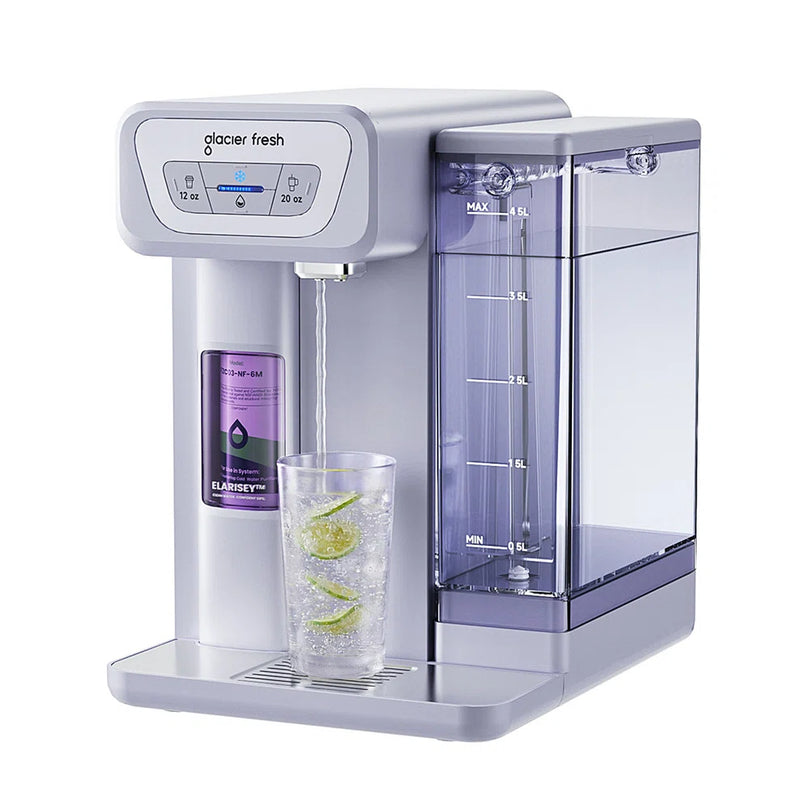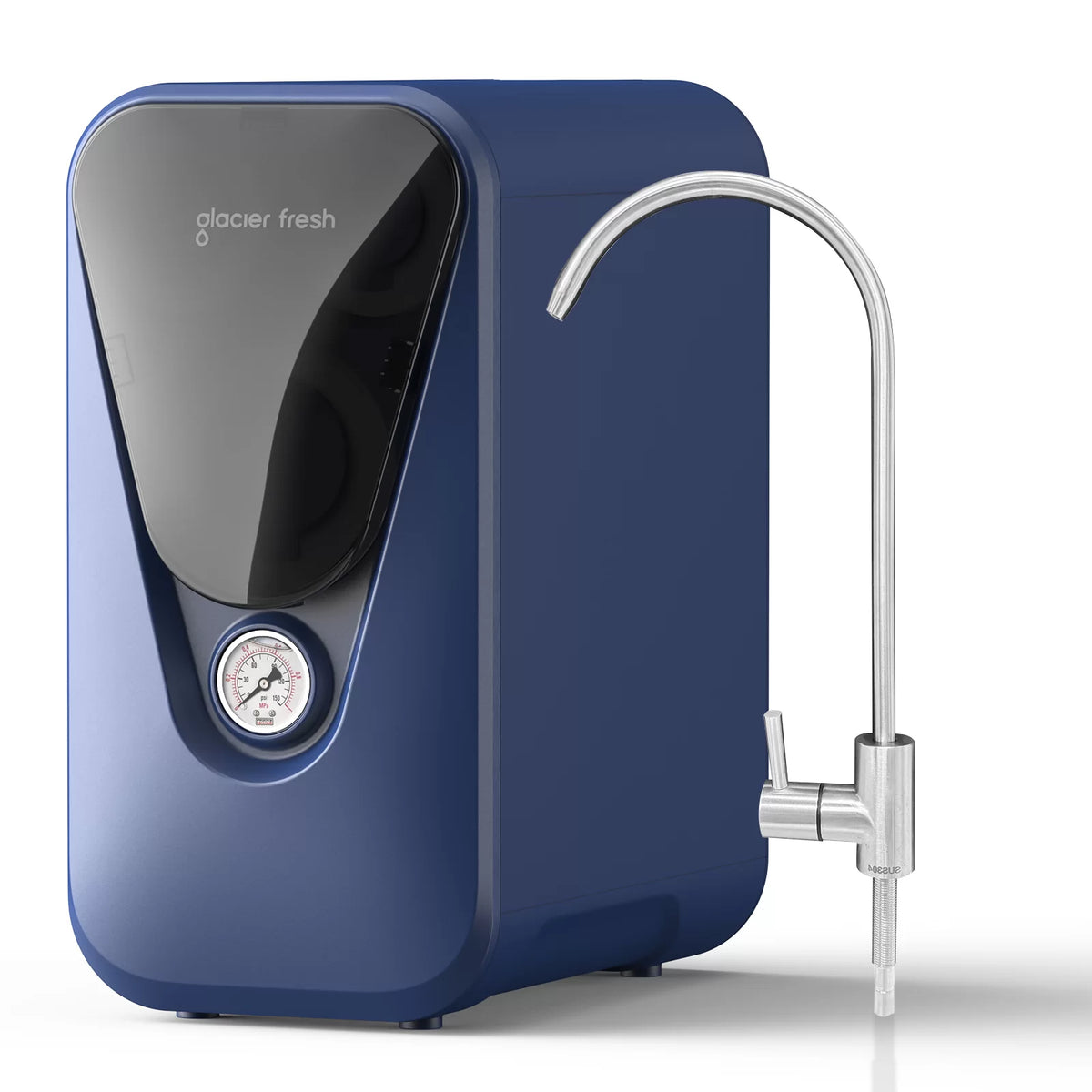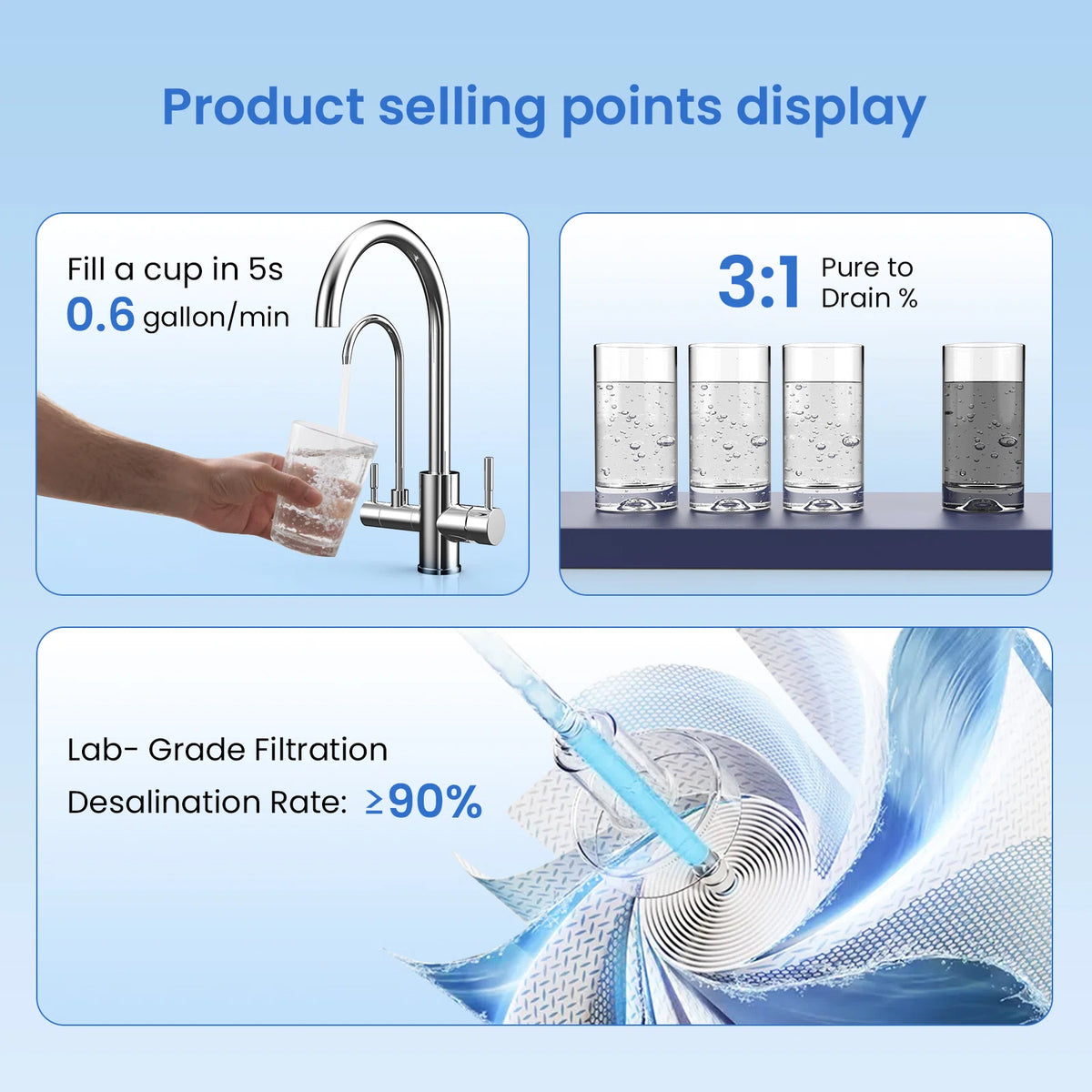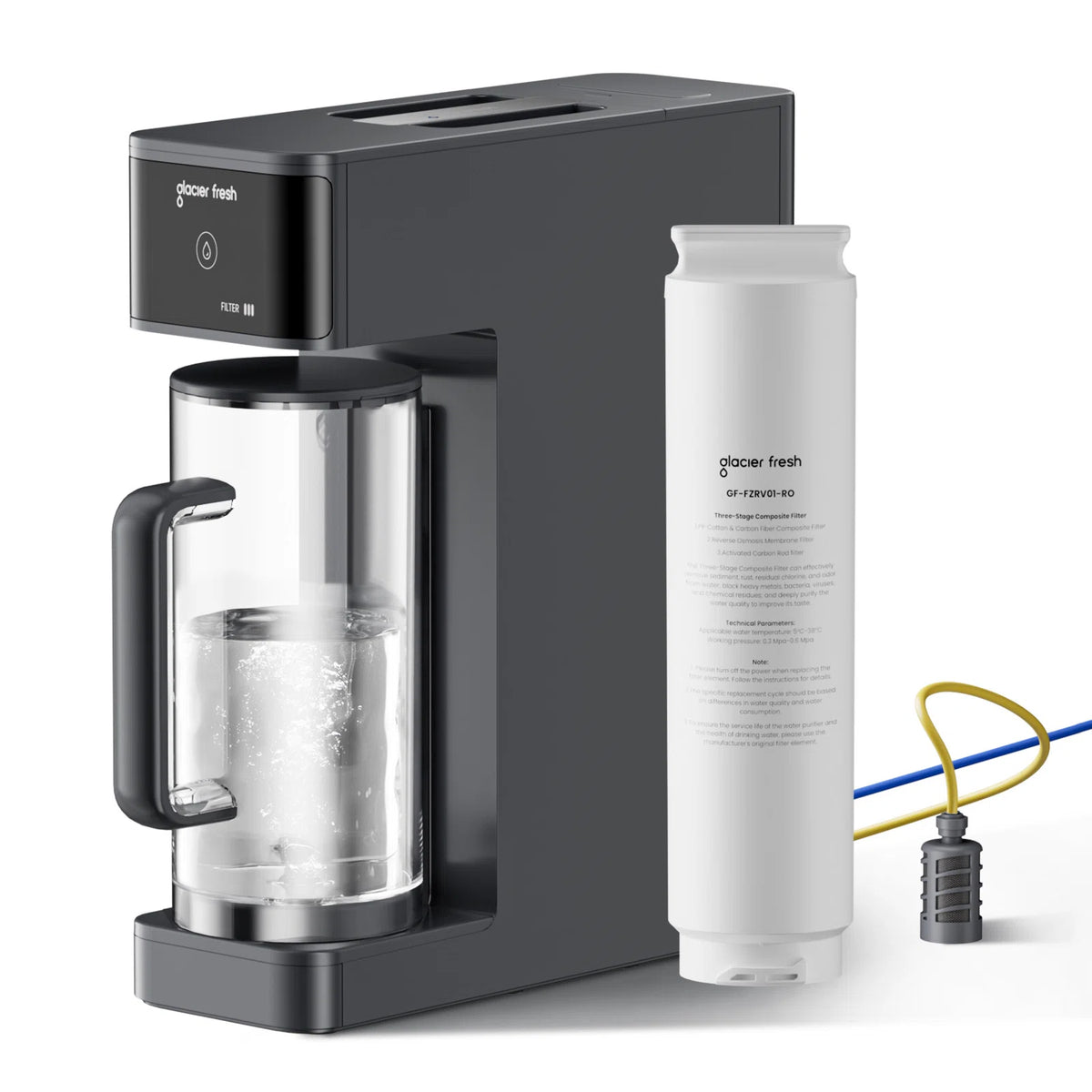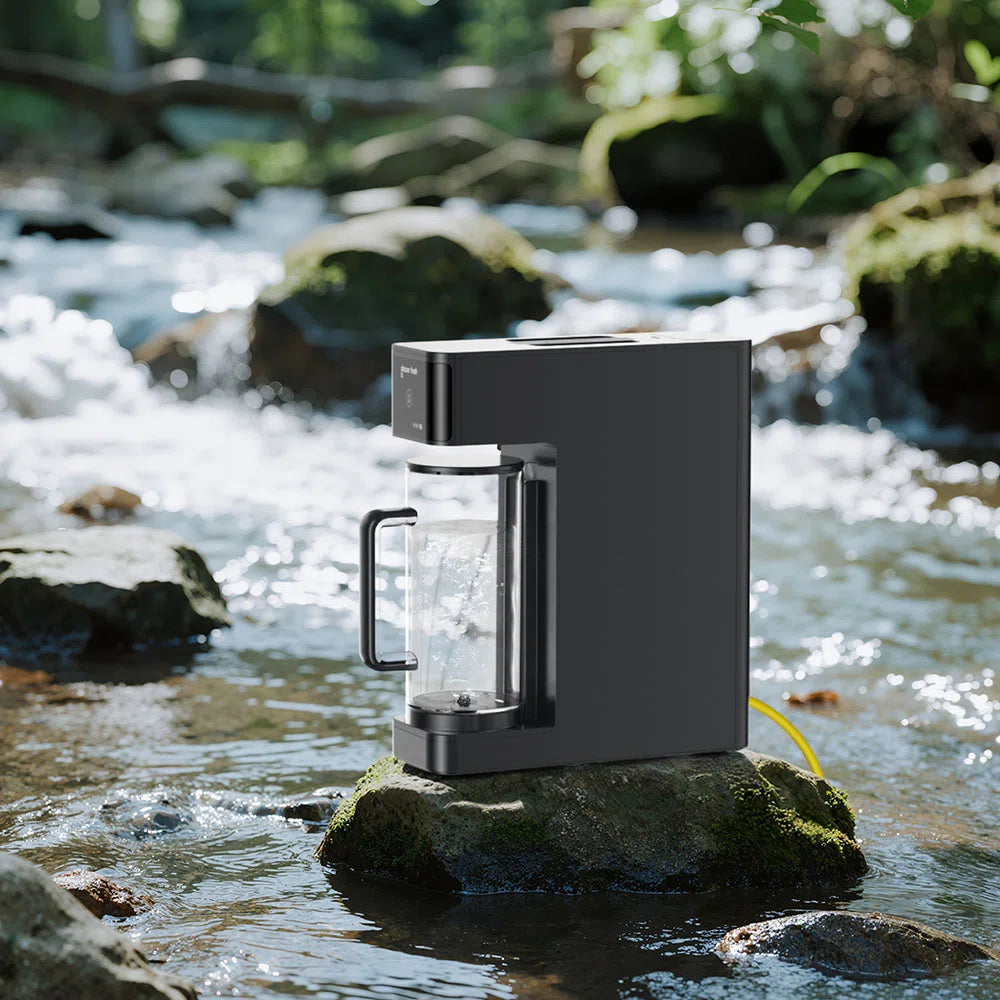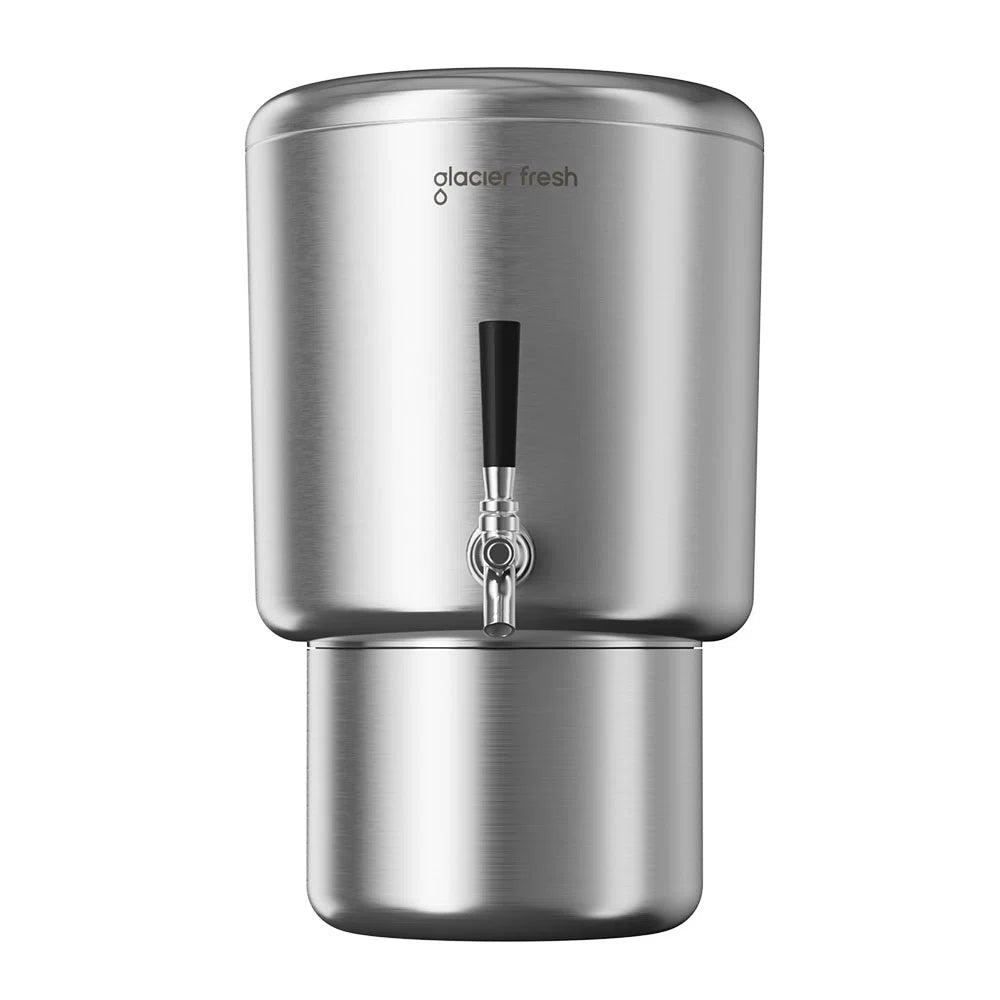Table of Contents:
What is boiled water
Benefits of boiled water
Risks of boiling water
What substances can boiled water remove
Boiled water VS filtered water
Why filtration may Be a better option than boiling
Types of filters that can be used with boiled water
Safety tips when using a water filter system with boiled water
FAQs
Conclusion
We all know that water is essential for life, but how safe is it when it’s been boiled? Boiled water has long been used to make drinks and dishes, and many people believe that boiling water makes it safe to drink. But is this true? In this article, we will explore boiled water`s benefits and its associated risks. We will also discuss the difference between boiled water and filtered water and safety tips for using a filter system with boiled water. So get your coffee cup ready because we are about to dive into the waters of boiled water safety!
What is boiled water?

Boiled water is any water that has been heated to the point of boiling, which is 212 degrees Fahrenheit at sea level. This process kills any bacteria or other microorganisms in the water, making it safe to drink. Boiling is a simple and effective way to make water for drinking safely and can be done with any type of pot or pan on a stovetop. Boilers are also available for those who do not have access to a stovetop.
Benefits of Boiled Water
· Safe Drinking Option
Boiled water is a simple and effective way to make water safe for consumption. The boiling water kills off water contaminants and eliminates potential toxins, making it safe for drinking. Hot water also contains fewer contaminants than tap water, which can contain heavy metals or chemicals. Additionally, boiling is one of the most reliable methods for purifying liquids during natural disasters when other sources of clean drinking water may not be available.
· Reduction in Microbes and Contaminants
Recent studies have shown that boiling water can reduce the number of microbes and contaminants in the water. This simple process dates back to ancient times, and is an effective way to make tap or well water safe for drinking. Boiling water kills bacteria, viruses, and other hazardous microorganisms by exposing them to extreme heat. It also reduces chemicals such as chlorine, lead, arsenic, and fluoride from the liquid.
Boiling water does not remove all of the contaminants from the tap water, however. While it effectively reduces some of them, it does not filter out other pollutants like sediment and organic materials. To ensure your drinking water is free from all contaminants, you may need to use additional methods such as a filter or reverse osmosis system.
· Enhancing Taste and Aroma of Food and Beverages
Enhancing the taste and aroma of food and beverages is essential to enjoying a meal or snack. Heating or boiling ingredients can bring out the full flavor of your favorite dishes and add complexity to their aromas. Boiling also helps to concentrate flavors, making them more intense and flavorful. Boiling is one of the most common methods for enhancing flavor and aroma. When vegetables are boiled, their natural sugars caramelize, creating a sweet and savory taste. Boiling meat brings out its natural juices, adding depth to its flavor. Similarly, boiling liquids like tea can extract different flavor levels depending on the time they are boiled.
Risks of Boiling Water
· Loss of Nutrients and Minerals
One potential downside to boiling water is the loss of certain essential nutrients and minerals. Boiling water can cause the water molecules to break apart, decreasing in the amount of calcium, magnesium, sodium, and other minerals in the liquid. This could lead to health issues if boiled water is consumed regularly with no other means of replenishing these lost minerals.
· Increase in Risk of Scalding Injury
Boiling water can be a great way to purify liquids for consumption or other uses, but it increases the risk of scalding injury. When boiling water, the water temperature can reach 212 degrees Fahrenheit (100 °C). This temperature is hot enough to cause severe burns if not handled properly. To prevent scalding injuries from boiling water, always use caution and proper safety protocols when taking the liquid. For example, never leave a pot of boiling water unattended, and never pour boiling water directly onto skin or clothing. Additionally, always wear protective gloves when handling hot liquids and use extreme caution when transferring the liquid from one container to another.
· Overtreatment with Boiling Water
Overtreatment with boiling water is unnecessary. Boiling water is an effective way to purify liquids, but it’s important to remember that boiling water beyond necessary can be wasteful and potentially harmful. Many people assume that longer boiling water will make it safer, but this isn't necessarily true. Most of the time, all that's needed to purify a liquid is to bring it to a rolling boil for one minute. After this point, continuing to boil the liquid won't make it any safer or more pure than before. If you continue boiling the liquid after this point, you can reduce its flavor and waste energy in the process.
· Possible Contamination from Unsafe Containers or Utensils
When boiling water for safe drinking, it is essential to consider the potential for contamination from unsafe containers or utensils. Containers and utensils that are not properly sanitized can contain bacteria and viruses that can spread to the boiled water. Therefore, it is essential always to use clean containers and utensils when handling or boiling water. In addition, any containers used to store boiled water should be made of a material that does not leach harmful chemicals into the water. This includes common materials such as plastic, rubber, and metal, potentially contaminating the boiled water if they contain toxins or other contaminants. It is best practice to use only glass, ceramic, or stainless steel containers to store boiled water.
What substances can boiled water remove?
· Bacterias and viruses
Boiling water effectively removes various substances from drinking water, making it safe for consumption. Boiling water kills most types of bacteria and viruses and removes many other contaminants, such as sediment and organic matter. Additionally, boiling water can remove certain metals, including lead, mercury, iron, and copper.
· Chlorine
In addition to killing harmful pathogens like bacteria and viruses, boiling water also reduces the amount of chlorine in the water. Chlorine is a common disinfectant used by municipal treatment plants to help eliminate harmful organisms from drinking water. When chlorine levels are too high in drinking water, it can adversely affect human health. Boiling the water helps reduce this risk by reducing the amount of chlorine present.
·Nitrate
Boiling water is an effective way to reduce the presence of nitrates in drinking water which can be potentially hazardous if consumed in large quantities over long periods. Nitrates are naturally occurring compounds often found in groundwater and can cause serious health problems if consumed at high levels. Boiling the water helps reduce these concentrations so they are safe for consumption.
Boiled water VS Filtered water

The debate of boiled water versus filtered water has been ongoing for years. Boiled water is simply water that has been heated to boiling point and allowed to cool, making it safe to drink. Boiling effectively reduces bacteria, dirt, and debris in your drinking water. However, it does not always remove all contaminants that may be present in the water, such as chemicals or heavy metals. Filtered water is created by passing the water through a filter that helps remove larger particles, such as dirt and debris and some dissolved contaminants, like lead and chlorine. Filtering can also help improve the taste of your drinking water.

When deciding between boiled versus filtered water, many factors come into play. Boiled water is a simpler option that requires less cost and effort than filtering but may not provide sufficient protection from all contaminants. On the other hand, a filter system provides more comprehensive protection from unwanted substances. Still, it can be more expensive and require regular maintenance or replacement of filters, depending on the model you choose. Ultimately, each person must weigh their options carefully before deciding which method best suits their needs regarding safe drinking water.
Why filtration may be a better option than boiling
While boiling water is a well-known method for killing bacteria and viruses, it doesn't remove harmful contaminants like heavy metals, chlorine, pesticides, or microplastics. These pollutants can remain in the water even after it reaches a rolling boil, posing potential long-term health risks.
In contrast, modern water filtration systems—such as activated carbon filters or reverse osmosis (RO) systems—are specifically designed to target a much broader spectrum of impurities.
-
Activated carbon filters effectively reduce chlorine, bad odors, and volatile organic compounds (VOCs), improving both safety and taste.
-
Reverse osmosis systems can remove up to 99% of dissolved solids, including lead, fluoride, nitrates, and other contaminants that boiling simply cannot eliminate.
Filtration also offers convenience—no waiting for water to cool, no extra energy costs, and clean water on demand. For families, immunocompromised individuals, or anyone concerned about long-term health, investing in a reliable water filtration system is often the safer, smarter solution.
Types of Filters that Can be Used with Boiled Water
· Activated carbon filter
Activated carbon filters are one of the most popular filtration methods. This type of filter uses activated carbon granules to absorb organic molecules like chlorine and benzene while improving the taste of your drinking water. It is a simple yet effective way to ensure that you consume clean, safe water without any dangerous toxins or harmful organisms.

Activated carbon filters use a process known as adsorption, in which molecules are attracted and held onto the surface area of the filter’s granules. These filters can be used alone or with other filtration systems like reverse osmosis or ultraviolet light to provide maximum protection against any impurities in your tap water. When it comes to installation, activated carbon filters are quite easy since they’re typically connected directly to your faucet or main water line for optimal performance. You can also choose from different sizes depending on how much water needs to be filtered and how often it needs replacing.
· Charcoal filters
Charcoal filters are a popular and cost-effective water filtration option that uses activated charcoal to absorb impurities from drinking water. They work by trapping contaminants and particles within their tiny pores, providing a safe and clean source of H2O. Charcoal filters include countertop systems, pitcher filters, under- sink models, and faucet-mounted filters. These filtration systems offer several advantages over other methods, including cost savings, easy installation, and minimal maintenance requirements. Charcoal filters are also highly effective at removing chlorine from tap water and bad tastes or odors that can make drinking water unpleasant. Additionally, they do an excellent job at filtering out certain heavy metals such as lead, copper, mercury, and more.
· Reverse osmosis system
Reverse osmosis system is a powerful and effective water filtration system that uses pressure to force impure water through a semi-permeable membrane. The tiny pores in the membrane are small enough to trap contaminants or particles, leaving behind pure, clean water. This method of filtration is often used in both residential and commercial applications.
Reverse osmosis systems can be installed either under the sink or connected directly to your main water line for maximum protection against harmful toxins and bacteria. They come in various sizes and capacities depending on how much water needs to be filtered and how often it needs replacing. Some systems even feature an additional post-filter to further improve drinking water quality. These systems usually require a separate faucet for outputting purified drinking water, but they also offer several other benefits, including energy efficiency, cost savings, and improved health benefits. Additionally, reverse osmosis filters are highly reliable with minimal maintenance requirements making them ideal for busy households.
· Ultraviolet filtration system
Ultraviolet (UV) filtration is an effective and safe way to purify water. This filtration system uses UV light to destroy harmful microorganisms, such as bacteria and viruses, in drinking water. UV filtration systems are designed to be compact and easy to install, making it an excellent choice for those looking for a hassle-free solution. The technology behind the UV filter works by exposing the water to ultraviolet radiation, effectively destroying any contaminants. This disinfection method has been proven to be highly effective against many harmful bacteria and viruses, making it a popular choice for anyone wanting to ensure their family has access to clean water.
Safety Tips When Using a Water Filter System with Boiled Water
Using a water filter system with boiled water effectively ensures your drinking water is safe and free from contaminants. However, there are specific safety tips you should remember when using a filter system with boiled water.
1: Follow the instructions
Always read the instructions on the filter system carefully before using it. This will help you understand how to properly use and maintain your filter system so that it continues to provide clean and healthy drinking water.
2: Check your filter regularly
Check your filter regularly for any signs of damage or wear and tear. If there are any visible issues, replace the filter immediately to ensure that you continue to have clean and safe drinking water.
3: Be careful about the water smell and taste
If you notice any changes in the taste or smell of your drinking water after filtering it through your filtration system, discard it immediately and replace the filter as needed.
4: Keep your boiled water in a clean container
Finally, remember to store your filtered, boiled water in a clean container that has been thoroughly cleaned before use. This will help reduce the risk of contamination from outside sources.
FAQs
Does boiling water kill bacteria?
Boiling water is a simple and effective way to purify drinking water and kill bacteria. Boiling water kills all living pathogens within it, including bacteria – as long as it boils long enough. You should boil your water for at least two minutes to ensure that all bacteria and other contaminants are destroyed.
Is filtered water better than boiled water?
Yes, in many cases. Filtration—especially with activated carbon or reverse osmosis—removes a wider range of contaminants, including those that boiling cannot address.
Can you boil water for too long?
Boiling water for too long can harm its taste, texture, and nutritional value. When water is boiled for an extended period time, essential minerals and nutrients can be leached out of it into the boiling liquid. Also, prolonged boiling can cause the water’s pH to become imbalanced. Overly acidic or basic waters are not suitable for drinking as they can cause stomach discomfort and other health issues if consumed in large quantities over a long period of time. As a general rule of thumb, it is best to boil your water for no more than two minutes.
Is it safe to reboil water?
Reboiling water is generally safe to drink if it has been brought to a rolling boil for at least one minute and then cooled down. However, reboiling can have an adverse effect on the water’s taste and texture, as well as its nutritional content. Additionally, contaminated water should never be reboiled; this will not kill off any bacteria present but could create a more concentrated solution that would make you sick if consumed. If you need to use contaminated water for cooking or drinking, it should be boiled for at least 10 minutes before consuming.
Conclusion
The answer to "Is boiled water safe to drink?" is a definitive yes. Boiling water is an effective and reliable method of disinfecting it, killing off any potentially harmful bacteria or parasites that could cause illness. However, boiling does not remove all hazards from drinking water. There can still be metals, chemicals, and other pollutants present in boiled water that can cause health problems if consumed over time.
For this reason, it is important to regularly test your tap or well water for safety before you drink it—even if you’ve boiled it first. And using water filters like activated carbon filters and reverse osmosis systems is also an effective way to ensure water safety. Follow Glacier Fresh to find more water filtration solutions.







